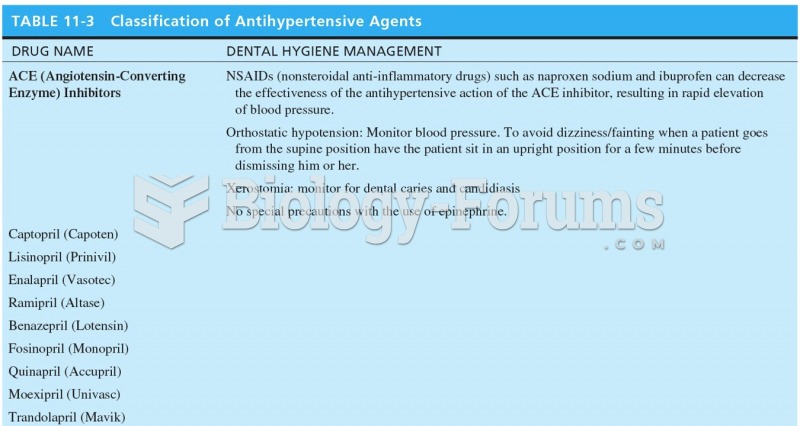|
|
|
In 1864, the first barbiturate (barbituric acid) was synthesized.
Historic treatments for rheumatoid arthritis have included gold salts, acupuncture, a diet consisting of apples or rhubarb, nutmeg, nettles, bee venom, bracelets made of copper, prayer, rest, tooth extractions, fasting, honey, vitamins, insulin, snow collected on Christmas, magnets, and electric convulsion therapy.
Bacteria have flourished on the earth for over three billion years. They were the first life forms on the planet.
In most cases, kidneys can recover from almost complete loss of function, such as in acute kidney (renal) failure.
Recent studies have shown that the number of medication errors increases in relation to the number of orders that are verified per pharmacist, per work shift.







